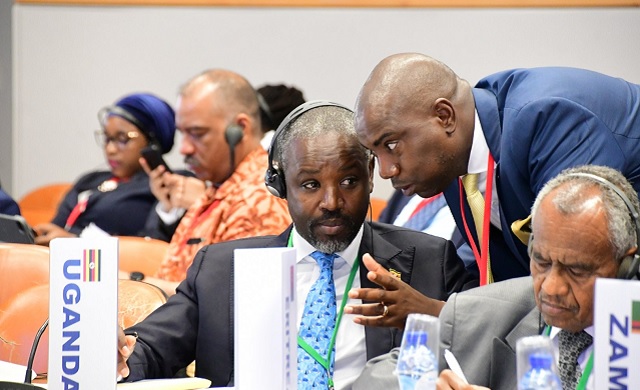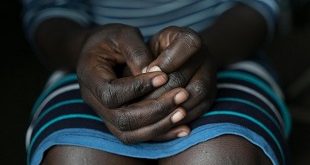
Kampala, Uganda | THE INDEPENDENT | The Deputy Speaker of Parliament Thomas Tayebwa has rallied world leaders, policymakers, and development partners to invest in skilling young people in order to curb unemployment.
Tayebwa made the call on Saturday while addressing over 400 global delegates at the ongoing week-long 63rd Organization of African, Caribbean, and Pacific States (OACPS) – European Union Parliamentary Assembly that commenced on 19 June 2023 in the Belgium capital, Brussels.
Citing Uganda’s youngest population in the world currently, with over 70% below 30 years of age, and educated, Tayebwa observed the biggest challenge is employment opportunities, noting that investing more in technical programs will empower the youth to be job creators rather than job seekers.
The National Population Council (NPC) figures, a state agency that advises the government on population show that Uganda has a population growth rate of 3.3 percent per annum, making it the third fastest-growing population in the world. From the current 45 million, Uganda’s population is projected to reach 75 million by 2040.
The summit is discussing essential themes that include the raging civil war in Sudan, the Democratic Republic of Congo (DRC), security dilemmas, emerging health pandemics, natural catastrophes, population explosions, and economic challenges around the globe.
Tayebwa added that increased investments in young people will equally have a ripple effect on productivity and, in turn, increase their purchasing power as opposed to spending billions of dollars on conflicts and arms.
At the ongoing Organization of African, Caribbean, and Pacific States (OACPS) -European Union Parliamentary sessions in Brussels, Belgium, we engaged with UNFPA on population issues focusing on the plight of young people in the face of escalating unemployment challenges among… pic.twitter.com/YMA0r0Y7ew
— Thomas Tayebwa (@Thomas_Tayebwa) June 24, 2023
Meanwhile, the United Nations Population Fund – UNFPA argues that world governments should continue to invest in the health of the population. The population agency says that the healthiness of the country’s labor force determines the level of productivity.
UNFPA reasons that smaller family sizes improve maternal health, which further improves child health, as well as increases women’s labor force participation, hence contributing to economic growth.
As population experts argue that investing in the youth age group will guarantee a healthy and skilled human resource, more than 70 percent of Ugandan youths are unemployed, a situation the government is striving to reverse.
Tayebwa was accompanied by Lwemiyaga County Member of Parliament, Theodore Ssekikubo, Sheema Municipality Member of Parliament Dickson Kateshumbwa, Dokolo District Woman MP Cecilia Atim Ogwal, Bashir Kazibwe Mbaziira of Kawempe South, and Dr. Samuel Opio Acuti, the Kole North Constituency Representative, among others.
The MPs pointed out that Uganda is a victim of her own successes because of the free Universal Primary Education – UPE, and Universal Secondary Education – USE that has enabled the population access to education but with no jobs.
According to the World Bank, if the increase in the number of working-age individuals can be fully employed in productive activities, the level of average income per capita should increase as a direct impact, thus the youth bulge will become a demographic dividend.
*****
URN
 The Independent Uganda: You get the Truth we Pay the Price
The Independent Uganda: You get the Truth we Pay the Price



